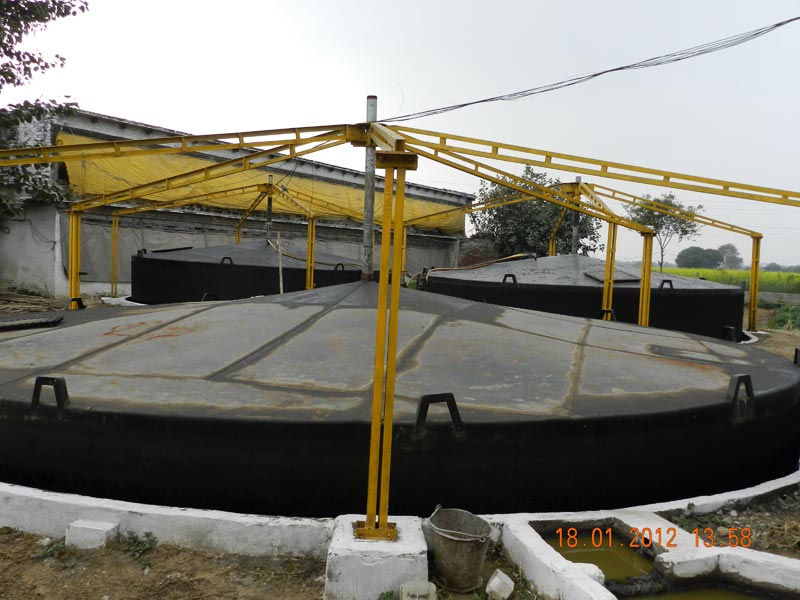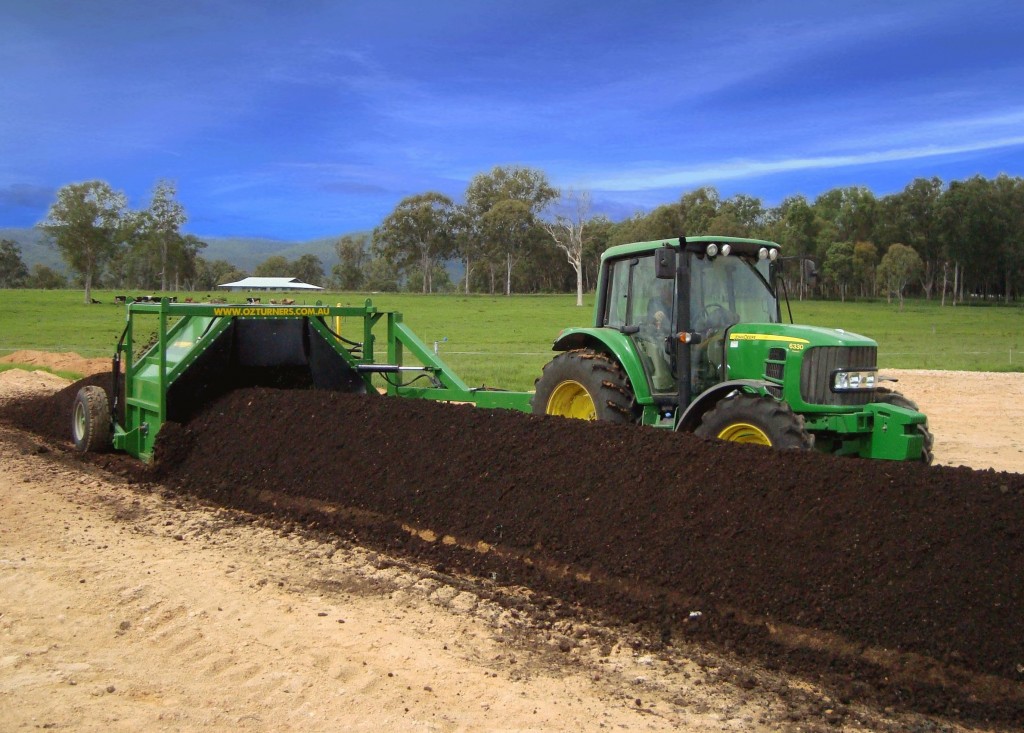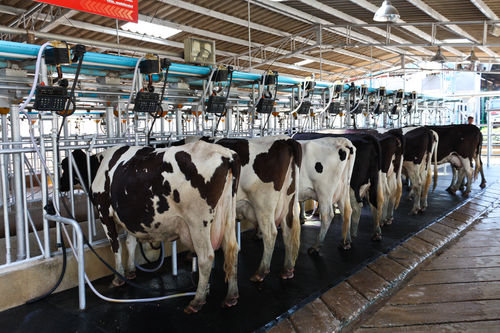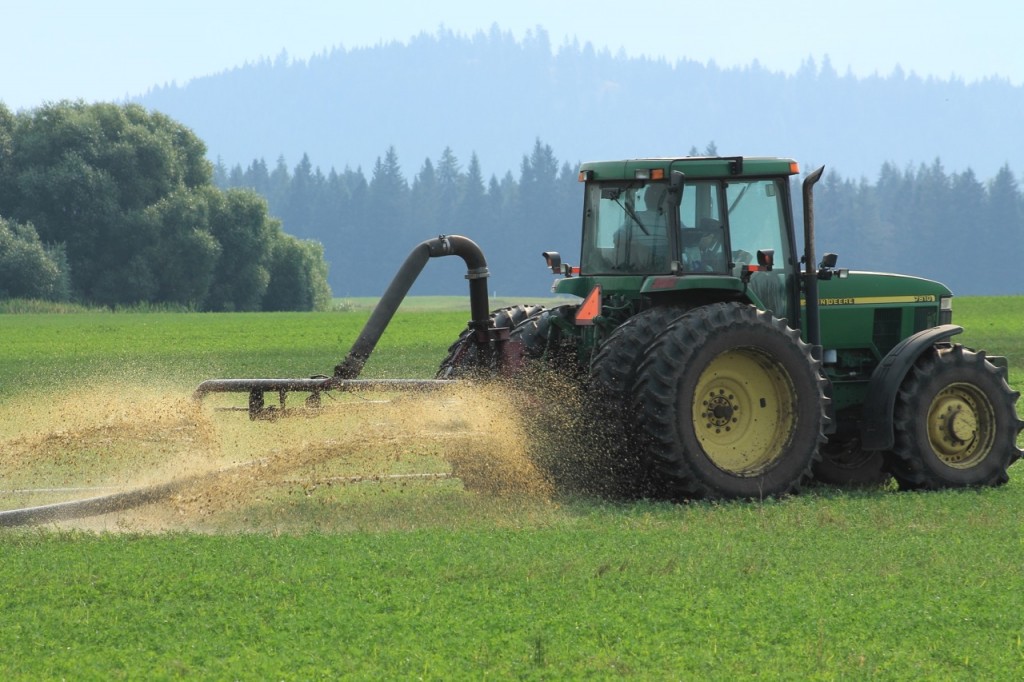
Spraying manure in Hullcar, photo by Alan Price
One of the first announcements from the new government in Victoria is that there will be a review of the Hullcar aquifer, which has been contaminated by elevated levels of nitrates likely from agricultural wastes. A significant goal for the review is to provide recommendations to improve regulations for agricultural practices province-wide in order to better safeguard drinking water quality. This process should thus assist local efforts to protect Shuswap and Mara Lake water quality.
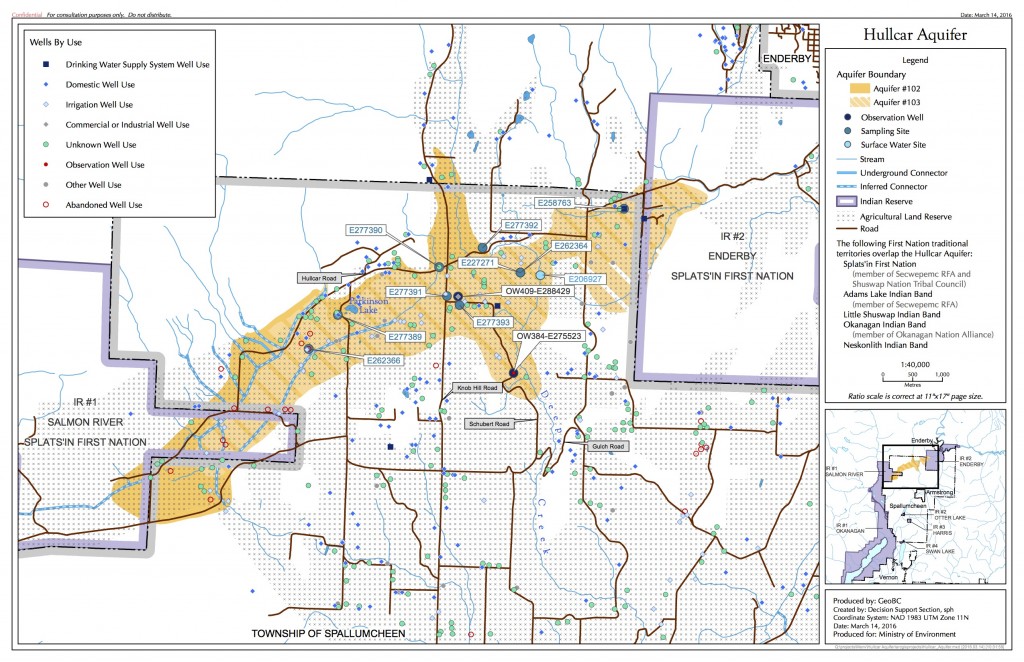
The situation in nearby Hullcar in the North Okanagan has been grim for sometime now, as the increase in groundwater pollution has coincided with an increase in the size and intensity of the local dairy industry. A drinking water advisory was listed in 2014 for the approximately 80 families who rely on the shallow, unprotected aquifer for their drinking water that is just 1.5 to 14 metres underground. Numerous studies and reports have been made and local dairy farms have received pollution abatement orders.

2010 Algae bloom in Mara Lake
In the Shuswap, concerns about deteriorating lake water quality has also resulted in numerous studies and the creation of the Shuswap Watershed Council that is tasked with ongoing monitoring, as well as developing solutions. While the concern in Hullcar is primarily with nitrates and in the Shuswap it is with phosphates, both pollutants are likely from the same source – cow manure, which is spread in liquid form from industrial dairy farms. The application of chemical fertilizers also contributes to the problems.

Given that only the provincial government has jurisdiction over agriculture, the Shuswap Watershed Council now has the opportunity to share the information it has collected to date, along with its concerns with the provincial government so that any upcoming improvements to agricultural regulations include measures that will also reduce the amount of phosphate loading into streams and lakes.

Graphic from 2014 Agricultural Nutrient Management review
One key report that the Hullcar review should study is the 2014 Agricultural Nutrient Management review that explained how many fields are saturated with phosphorus and yet more is added every year. A 2007 provincial and federal government investigation showed that 96 percent of local fields posed a high or very high risk of phosphorus leaching or running off into surface water.
Biogas generator in India
The problems occurring here and in Hullcar are not unique, as pollution from agricultural wastes is a global problem. Much could be gained by reviewing how other jurisdictions are dealing with the issue. Gaining in popularity is the use of biogas generators that produce electricity while decreasing the amount of methane gas going into the atmosphere, as it is 72 times worse for the climate than CO2 over 20 years. After the methane is cooked out of the manure, the nutrients remain but the material can then be composted.
Although it is more costly than the use of lagoons and liquid manure spreaders, composting is by far the best solution because it converts the nutrients into non-water soluble salts that soil organisms can consume, which better nurtures the growing crops. Photos of fields in Australia that have been fertilized with composted cow manure show healthy forage crops that are grazed far more often than the depleted neighbouring fields that have been sprayed with effluent.
The rules governing agriculture in B.C. have been too lax for far too long, as evidenced by the polluted groundwater in the Fraser Valley that is beyond remediation. Dairy farmers take advantage of the lack of regulations and crowd farmland with far more cows per hectare than is sustainable. Win-win solutions are possible and the Hullcar review will hopefully lead the way.
POSTSCRIPT
There is much to read about the Hullcar aquifier issue on the Ministry of Environment’s website using this link.
Download the 2014 Agricultural Nutrient Management review here.
BACKGROUNDER
B.C. hydrologists call for government action on Hullcar Aquifer pollution
VANCOUVER — The Globe and Mail
Published Sunday, Apr. 24, 2016Doug Geller has 27 years of experience as a hydrogeologist and is frequently invited to speak at professional conferences on the topic of groundwater.
Ryan Rhodes specializes in groundwater exploration, evaluation and development.
Bryer Manwell was part of a core team that assessed the groundwater resources of the Okanagan Basin for the regional water district.
The three hydrogeologists run Western Water Associates Ltd., an environmental consulting firm in Vernon, B.C. They understand how important groundwater is, how easy it is to pollute, and what needs to be done to protect it.
All of which means the open letter they recently sent to the provincial government should make officials sit up and take notice.
The trio wrote after attending a public meeting in the North Okanagan, where officials from several ministries sought to assure residents of the Hullcar Valley that adequate steps were being taken to deal with nitrate pollution of the local aquifer.
Two years ago, the Interior Health Authority issued a water-quality advisory for the aquifer after tests showed nitrate levels were unsafe. About 150 residents are supplied water from the aquifer by the Steele Springs Waterworks District, near Armstrong, B.C.
The government has come under fire from residents because a dairy farm, initially identified by the province as the most likely source of nitrate pollution, has been allowed under a compliance order to continue spreading thousands of gallons of liquid manure on fields above the aquifer.
Demands by valley residents for an order stopping the spreading of manure have not been acted on because the government says it needs more time to pinpoint sources.
“We are dismayed at both the response by the Ministries of Health, Environment and Agriculture to date, and with their proposed plans,” the three hydrogeologists write. “These plans call for a year-long study; however, this study, in and of itself will do nothing to alleviate the contamination of a drinking water source in the near-term.”
Mr. Geller, Mr. Rhodes and Ms. Manwell reviewed the government’s reports and data on the Hullcar Aquifer and concluded that “it is our professional opinion that effluent spreading on the field of concern by Jansen and Sons Farms Ltd. is extremely likely, if not certainly, the source of most of the nitrate contamination in Steele Springs.”
The government has said there are possibly multiple sources for the pollution, including seepage from septic tanks and nitrates coming from other farms in the area.
The Jansen family has not responded to media calls, but is operating within provincial regulations, is not the only farm near the aquifer, and clearly does not feel it should shoulder all the blame for the pollution.
But the hydrogeologists say they have little doubt that the main source is the Jansen farm, and the government should halt the spreading of manure while its investigations proceed.
“We do not believe public health and protection of the environment is being held paramount in government’s handling of this issue,” they write. “This contamination poses a clear risk to public health.”
In a recent letter to the citizens’ group Save Hullcar Aquifer Team, Interior Health expressed confidence in the government’s multi-agency action plan.
Kamran Golmohammadi, the medical health officer, states the goals are to provide safe drinking water, to build public trust, to ensure “sustainable economic development for the local agrifood sector” and to determine “as scientifically accurately as possible the sources of nitrates in the Hullcar Aquifer.”
Dr. Golmohammadi says if studies point to a specific pollution source, the government will take action, and he urges patience, saying: “To achieve these goals, the inter-ministry working group needs time.”
Residents of Hullcar Valley, however, who have had foul water coming out of their taps for two years already, are fed up. They say government should put public health and protection of the environment ahead of the commercial interests of agribusiness. Now professional hydrogeologists are saying the same thing, meaning not just drinking water is at stake in the Hullcar Valley anymore – it is the credibility of the government too.
